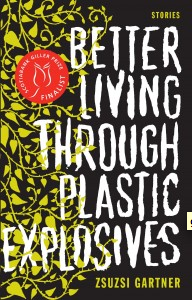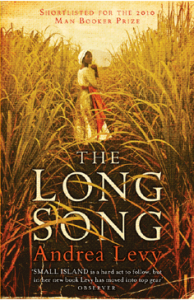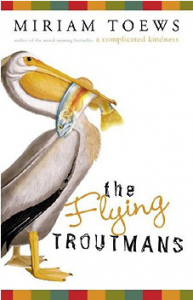A Reader Reports: Lost in Booktopia
Hello, and welcome to the third edition of A Reader Reports! I love talking to you about recent reads; I can't believe I waited so long to make it a blog feature. I've been reading like a fiend lately (reading while breastfeeding = win!) and without a particular program – just falling into whatever book is new to me and nearby, with amazing and enlightening results.
Zsuzsi Gartner, Better Living Through Plastic Explosives
I read Zsuzsi Gartner's first short-story collection, All the Anxious Girls on Earth, in 2000 and fell for it, hard. I admired Gartner's prose style, eye for detail, and satire. I also loved her prickly relationship with Vancouver; the city is practically a character in itself. Having loved the first book so much, I was very anxious about the new one.
I should have had more faith. Gartner is better than ever – funnier, angrier, fiercer, bolder, subtler. She's still primarily a satirist, writing within a long tradition but in a slightly futuristic, quasi-fantastic, dystopian world. She's still terribly funny, too, and her vision is so dark that you flinch as much as you laugh. And yes, she still detests Vancouver. And pretension. And most people, apparently. But she now displays more compassion for the characters she scourges, and that's what makes this a finer work of art. There's real empathy here, and a sense of mourning for a world gone terribly, probably irredeemably, wrong.
Andrea Levy, The Long Song
One reason I resist e-readers is because they deny me one of my favourite habits: browsing other people's bookshelves. I love, love, love peering into people's brains via their reading habits, as well as how and where they keep their books. I spotted this one on top of a small pile in my parents' living room. I'd never heard of it, although clearly I should have. It's an absolutely first-rate historical novel about Miss July, a house slave on a sugar plantation in early nineteenth-century Jamaica. Beautifully written, bursting with respectful and vivid dialect, and funny. You might not see much room for humour in life under slavery, but Levy is persuasive on this subject. Life, no matter how brutal, is tricky and surprising and leaves room for humour if you're the sort of person to see it. She clearly is, and the result is utterly memorable.
Jill Paton Walsh, The Attenbury Emeralds
You may already know how much I adore the detective fiction of Dorothy L. Sayers and especially her sleuth, Peter Wimsey. If you haven't had the pleasure of reading Gaudy Night, please do so as soon as possible. I dream of writing (but will never manage) a mystery novel as good, or a romantic couple with the depth and heart of Peter Wimsey and Harriet Vane. This knowledge doesn't stop me from reading and re-reading Sayers with utter pleasure.
All Sayers fans feel the same way, so Jill Paton Walsh risks life and reputation in writing a continuation of their story. The mystery here is beside the point; all really want to know is What Happened Next with Peter and Harriet. And this shows: while the mystery is twisty and fairly clever, its structure is inherently broken-backed and the dénouement should have been stronger. But the life stuff – the ongoing romance, the family story – is really, really good. Paton Walsh's research into the post-war period feels authentic and she creates a complex and believable life for Peter (the younger son of a duke, and thus a central part in a class system that's beginning to feel its irrelevance), Harriet (his detective-novelist, bluestocking wife), and their family. It's a satisfying book when you're reading for Peter-and-Harriet and using the mystery as a pacing device. This sounds like faint praise (or passive-aggressive criticism), but it's a significant achievement and Paton Walsh's writing is clean and elegant in its homage to Sayers, especially when giving voice to the other members of the Wimsey family.
Miriam Toews, The Flying Troutmans
This novel really shouldn't work: it's a self-consciously zany, neurotic, roadtripping, coming-of-age saga about a family with serious mental health issues. It's largely, deliberately, plotless. It's written almost entirely in dialogue. It ends with redemption. And it's absolutely fantastic.
Miriam Toews has a brilliant ear, an enormous amount of sympathy for misfits, and a fine understanding of the endless difficulties of being a weird kid. The Flying Troutmans is like a perfect rebuttal, or a reverse-engineered recipe: take all the groan-inducing clichés of CanLit. Add a fiercely self-conscious wit. And suddenly, you have a completely addictive firecracker of a novel. (In fact, between them, Miriam Toews and Zsuzsi Gartner offer a brilliant and convincing refutation of all that people complain of in Canadian literature.) This was SO good, you guys.
Robert van Gulik, The Chinese Maze Murders
Oh, I'm ambivalent about this one. Robert van Gulik was a diplomat and scholar of ancient Chinese detective fiction. He knew far more about the Chinese tradition of murder-mysteries than I ever will. His aim in writing (this novel is part of a series featuring his sleuth, Justice Dee) was to share that tradition with contemporary Western readers, and in this he partly succeeds: I learned some interesting details about justice and daily life during the Ming Dynasty, and enjoyed van Gulik's period-style illustrations.
But even now, I'm not sure how much of what I disliked was due to the genre/tradition, and how much was van Gulik's own contribution. The narrative style is mannered and stilted, the characters are entirely two-dimensional, and most of the twists in the plot were given away in the jacket copy! The one element that I know was van Gulik's idea (the identity & motivation of the last murderer) is very much a sensationalist cliché of his time (the 1950s), which I can't help reading with a modern sensibility. Finally, this edition (published by the University of Chicago Press, which really ought to do better) also contains a number of distracting typos. Still, it has novelty value and while I wouldn't read another Judge Dee mystery, I appreciated learning a little about a different tradition of detective fiction.
How about you, friends? What have you been reading?








